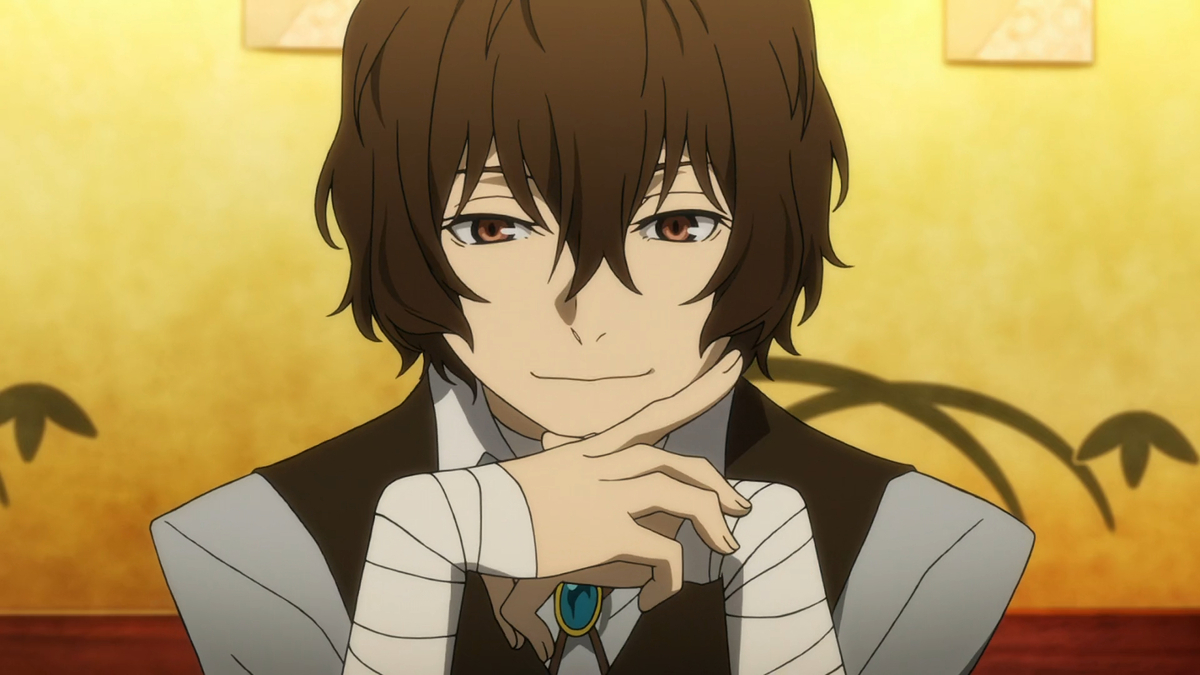Few anime characters walk the tightrope between charm and chaos like Dazai Osamu from Bungou Stray Dogs. With his witty one-liners, penchant for dramatic suicide jokes, and enigmatic backstory, Dazai has become a fan-favorite character, frequently topping popularity polls and inspiring a flood of memes, edits, and fanfiction.
But beneath that cool, eccentric exterior lies something much darker: a past soaked in blood, manipulation, and moral ambiguity. A former executive of the Port Mafia, Dazai wasn’t just a member of a criminal organization—he was its cold, strategic genius. Even after leaving the underworld for the Armed Detective Agency, his past actions and inner darkness remain relevant, casting a long shadow over every decision he makes.
So, why do fans still romanticize him?
In the era of media critique and psychological depth, characters like Dazai challenge us. They aren’t simply “good” or “evil.” They reflect the messiness of trauma, redemption, and morality. Yet the question stands: Is our fascination with Dazai healthy appreciation of complexity—or are we glossing over dangerous behavior in favor of aesthetic appeal?
Let’s explore the layers of Dazai’s personality, history, relationships, and why he remains such a controversial—and irresistible—figure in anime culture.
The Allure of Dazai: Charm, Wit, and Mystery
Dazai Osamu is immediately captivating. From his dramatic attempts at double suicide (often for comedic effect) to his flirtatious teasing of colleagues like Kunikida Doppo, he presents himself as aloof and unpredictable. His intelligence and strategic brilliance often help save the day, but it’s his magnetic personality that keeps fans engaged.
The character design doesn’t hurt either—tall, slim, well-dressed, and perpetually wrapped in mystery, Dazai embodies the archetype of the “handsome genius with a dark past.” Anime has many of these, but few strike the same chord that Dazai does.
That mystery—combined with moments of genuine care, like mentoring Atsushi Nakajima or protecting Kyouka Izumi—adds layers of emotional depth. He’s not just funny or charming; he’s deeply, painfully human.
But romanticizing Dazai often overlooks what he’s actually done—and what he still struggles with.
A Past in the Shadows: Port Mafia’s Demon Prodigy
Dazai was once known as the “Youngest Executive” of the Port Mafia, and his role there wasn’t symbolic. He orchestrated assassinations, interrogations, and brutal missions. He was feared by enemies and trusted by Ōgai Mori, the Port Mafia boss. That kind of influence doesn’t come without ruthless action.
He didn’t just follow orders—he built strategies and psychological traps that led to countless deaths. His cold logic and detachment made him a powerful asset, but also deeply dangerous.
This isn’t ancient history. The scars of his actions still haunt him—and those around him. People like Chūya Nakahara, his former partner, often remind him (and us) of the blood on his hands.
So why do many fans choose to forget this past and focus instead on his humor or aesthetics?
Depression, Suicide, and Comedy: Is It Problematic?
Dazai’s constant jokes about wanting to die are portrayed humorously in the show—but they stem from real suicidal ideation. This duality has created ongoing discourse in the fandom. Some argue that it’s a unique way of showing mental health struggles in a stylized format. Others say it trivializes a serious issue.
It’s true that Bungou Stray Dogs handles mental illness with a layer of abstraction. The literary references—Dazai Osamu being named after the real-life Japanese author who died by suicide—add a meta-commentary that can be misread as glorification.
For viewers who’ve experienced depression or suicidal thoughts, Dazai can feel both painfully relatable and dangerously romanticized. When jokes about death become aesthetic, there’s a risk of normalizing or even glamorizing suffering.
Redemption or Rebranding?
Dazai’s shift to the Armed Detective Agency appears to be a redemption arc. He uses his intellect for good, helps new agents, and prevents violence—sometimes with violence of his own. But the anime never fully clarifies whether he’s trying to atone or simply stay entertained by playing “hero.”
This moral ambiguity is both the strength and flaw of his character. His morality is fluid. His motivations are unclear. While that complexity is compelling, it’s also easy to misinterpret. Some fans interpret his actions as signs of personal growth; others see a man detached from consequences, playing games with people’s lives.
Fan Culture: The Dangers of Over-Romanticizing
Dazai’s popularity is undeniable. But so is the romanticization of his trauma, darkness, and violence. Fan edits often glamorize his mental illness, pain, and criminal background without nuance.
Shipping him with younger characters, ignoring his manipulative tendencies, or portraying him as a “sad boy who just needs love” often erases the more troubling aspects of his personality. This can lead to a skewed perception that conflates toxicity with depth.
Worse, this kind of fan culture can desensitize audiences to real mental health issues or justify unhealthy behaviors because “he’s hot” or “he’s just broken.”
What Makes Dazai Work
To be clear: Dazai is a brilliantly written character. His contradictions make him fascinating. His intelligence, emotional depth, and inner conflict are compelling. He’s a perfect example of how anime can portray complex, layered individuals.
But being compelling doesn’t mean being excused.
It’s possible to admire the storytelling without idolizing the darker behaviors. It’s okay to love Dazai as a character while also critically engaging with his actions and their consequences. That’s what makes fandom healthy and interpretation meaningful.
Conclusion
So, should Dazai Osamu be romanticized? Probably not blindly.
He should be analyzed, discussed, and even appreciated—but with nuance. His character is a study in contradictions: villain and hero, comic relief and tragedy, strategist and emotional wreck. That complexity is what makes him iconic, but it’s also what requires responsibility from fans and creators alike.
In a world where anime fandom is evolving rapidly, Dazai is the kind of character who deserves to be loved for what he is—not for what he isn’t.


